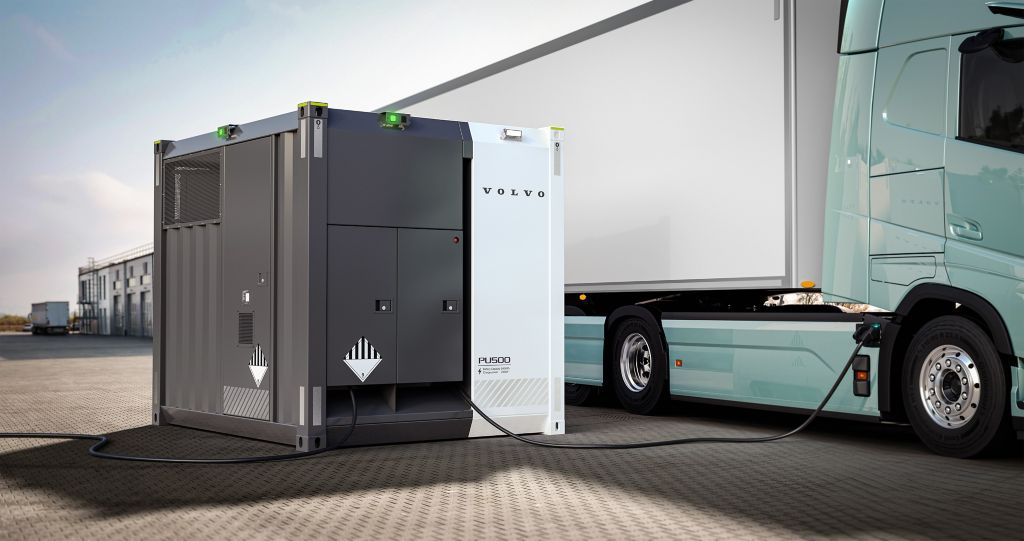Powering businesses with energy solutions


Volvo Energy is playing a key role in bringing this technology to market, paving the way for the increased rollout of zero emission battery electric vehicles across a broad swathe of industries and use-cases.
With a focus on flexibility, functionality and convenience, Volvo Energy delivers innovative Battery Energy Storage Systems (BESS), seamless charging infrastructure, and smart battery lifecycle management for a broad range of applications – from transportation company depot to onsite construction machine charging.
PU500
The PU500 mobile power unit, with a capacity of 450-540 kWh, stores electricity from various sources — grid, solar, or wind — and releases it as and when required, making it ideal for businesses operating in remote locations or with limited grid access. With its built-in safety features, cybersecurity measures, and compliance with EU standards, BESS is a hassle-free solution that delivers power and peace of mind.
PU2000
The PU2000 is on the horizon in Q3 2025, offering advanced energy storage solutions designed with a focus on safety, flexibility, and seamless integration. Featuring an all-in-one design and superior integration, along with future-proof capabilities, the PU2000 is to meet the evolving demands of modern energy systems. It provides a reliable and sustainable solution for industries and facilities seeking efficiency and long-term operational value.
The benefits of a battery energy storage system
Streamlined charging for maximum convenience
The increased adoption of battery electric vehicles for business, public or private use relies on the availability of clean and affordable energy – and most importantly – a way to store it. Depot charging systems, as one example, can allow fleets to recharge overnight at their home base, ensuring vehicles are ready for the day’s routes. These setups are tailored to each customer’s needs, minimizing downtime and simplifying logistics.
When it comes to on-the-road charging, Volvo Energy, through its parent company Volvo Group, is expanding access to charging infrastructure through strategic partnerships. In Europe, the collaboration with Milence (a joint venture with Daimler Truck and TRATON Group) aims to deploy 1,700 public charging stations by 2027, open to all heavy-duty vehicle brands.
In North America, the partnership with Pilot Company is rolling out high-performance chargers at select Pilot and Flying J travel centers, catering to medium- and heavy-duty trucks. These stations are supported by Volvo Connect, a digital platform that provides real-time updates on charger availability, pricing, and estimated charge times, simplifying trip planning.
Second life
Volvo Energy’s approach to battery lifecycle management adds another layer of practicality. Instead of letting used EV batteries go to waste, they are inspected, reused, or refurbished for second-life applications, such as powering the BESS units described earlier, extending useful battery life and maximizing value for business. Advanced AI tools monitor battery performance in real-time, determining whether a battery is best suited for another vehicle or an energy storage system.
When batteries can no longer be reused, Volvo Energy recycles them, extracting materials like lithium and cobalt for new batteries. This efficient process reduces costs and ensures businesses get the most out of their investments. By integrating circularity into their operations, Volvo Energy makes sustainability a practical byproduct of smart resource management.
Backed by nearly a century of Volvo Group expertise, Volvo Energy combines innovation with reliability – solutions built for real-world challenges, prioritizing functionality and convenience over complexity.
Learn more about Volvo Energy and how it can help to power your progress